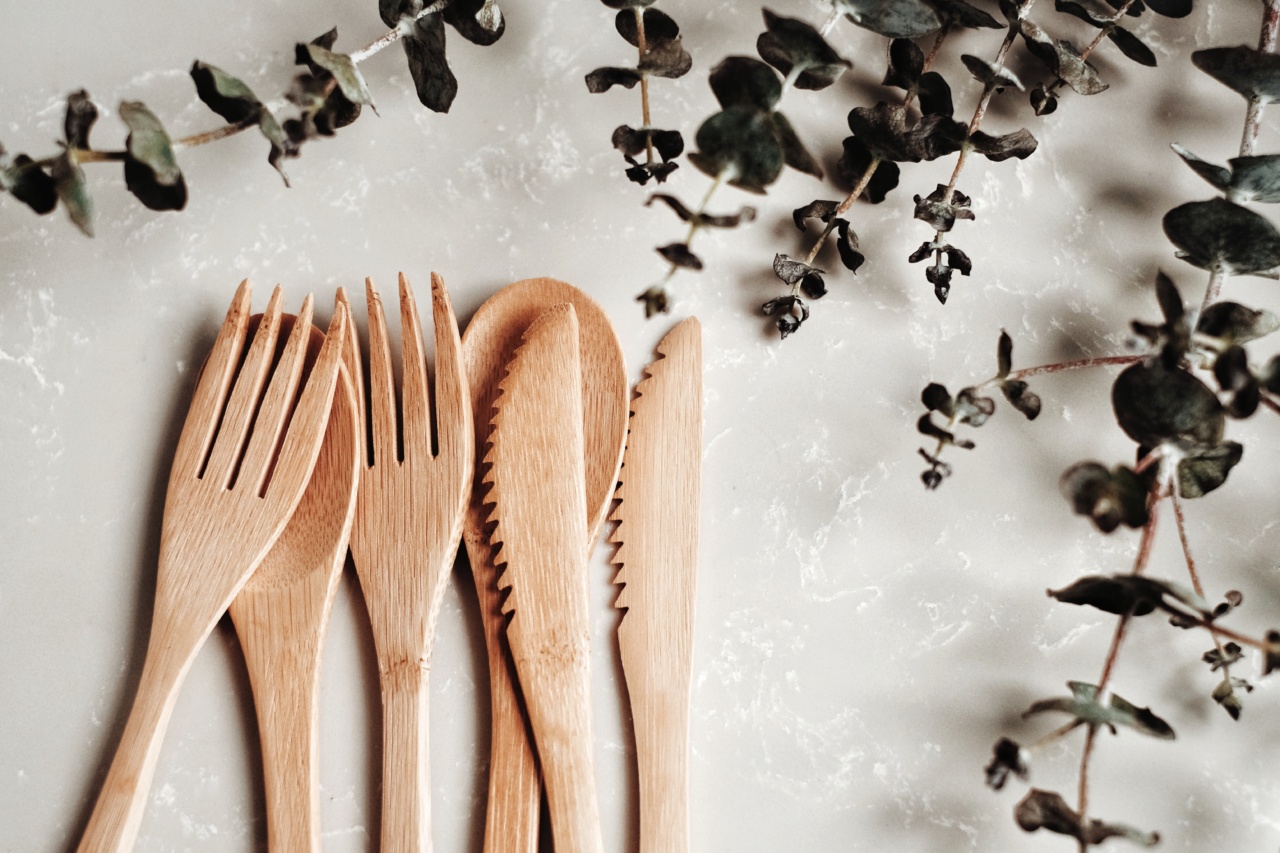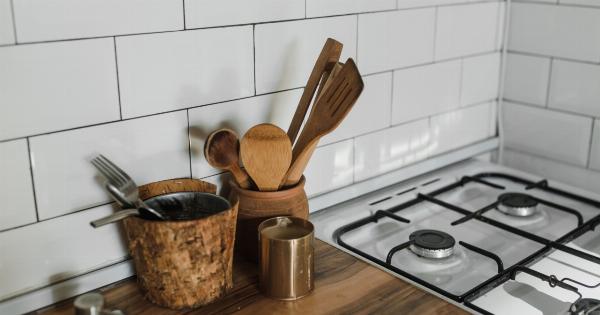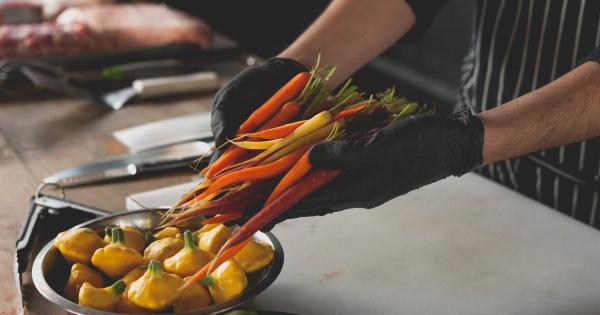When it comes to cooking and preparing meals, the right tools can make all the difference.
While many people focus on investing in high-quality cookware and knives, they often overlook the importance of regularly changing their tapper and wooden utensils. In this article, we will explore why it is crucial to replace these utensils periodically and the benefits it can bring to your kitchen.
The Deterioration of Utensils
Tapper and wooden utensils are widely used in kitchens around the world due to their convenience and versatility. However, over time, these utensils can deteriorate and become less effective.
Wooden utensils tend to absorb food flavors, odors, and even colors, which can impact the taste and appearance of future dishes. Similarly, tapper utensils can collect bacteria and food particles that are difficult to remove, making them unhygienic and potentially hazardous to your health.
Food Safety
One of the most important reasons to change your tapper and wooden utensils regularly is to maintain food safety. As mentioned earlier, these utensils can harbor harmful bacteria and germs, especially in the cracks and crevices that develop over time.
Regular wear and tear can lead to chipping or splintering of wooden utensils, providing an ideal breeding ground for bacteria. By replacing these utensils periodically, you can reduce the risk of foodborne illnesses and ensure the safety of your meals.
Kitchen Hygiene
Keeping your kitchen clean and hygienic is essential for maintaining a healthy environment. Tapper and wooden utensils that have been used extensively can accumulate residual food particles, oils, and stains that are difficult to remove completely.
No matter how diligently you clean them, it is nearly impossible to eliminate all traces of these substances, resulting in potential cross-contamination between different ingredients. By regularly replacing your utensils, you can maintain a higher level of kitchen hygiene and reduce the likelihood of food contamination.
Improved Cooking Experience
Using worn-out utensils can negatively impact your overall cooking experience. For example, wooden utensils that have become rough over time may scratch non-stick or delicate cookware, damaging its surface and reducing its lifespan.
Tapper utensils that have lost their shape or become loose can make it challenging to handle hot pots and pans safely. By using new utensils, you can ensure a smooth and enjoyable cooking process, while also prolonging the life of your cookware.
Enhanced Flavor and Aesthetics
As mentioned earlier, wooden utensils have a tendency to absorb flavors, odors, and colors from the foods they come into contact with. This can lead to an unwanted transfer of tastes and smells to future dishes, altering their intended flavors.
By replacing your wooden utensils regularly, you can ensure that your meals maintain their original flavors and aromas. Additionally, these utensils can leave behind unsightly stains and discoloration, which can affect the presentation of your food. Investing in new utensils will significantly improve the visual appeal of your dishes.
Longevity of Utensils
Optimally maintaining your tapper and wooden utensils will contribute to their longevity. By changing your utensils periodically, you can prevent excessive wear and tear, ensuring that they remain durable and functional for an extended period.
This will save you money in the long run since you won’t have to replace them as frequently. Regularly inspecting and replacing your utensils shows a commitment to their care, resulting in utensils that will serve you well for many years to come.
Eco-Friendliness
Choosing to change your tapper and wooden utensils regularly also has positive environmental implications.
The production of these utensils involves the use of natural resources such as wood and metal, as well as the manufacturing processes that require energy and generate waste. By reusing utensils for extended periods, you may contribute to unnecessary resource consumption and pollution. By consciously replacing your utensils when necessary, you can reduce your environmental footprint and promote sustainability.
Maintaining a Tradition
In some cultures and families, the use of tapper and wooden utensils holds a significant historical or sentimental value. These utensils might have been passed down through generations, carrying stories, memories, and traditions.
Replacing them periodically is a way to honor that tradition and keep it alive. By investing in new utensils while respecting the heritage of the old ones, you can create a connection between the past and the present, preserving the cultural significance attached to these tools.
Conclusion
In summary, changing your tapper and wooden utensils regularly is essential for various reasons.
From ensuring food safety and maintaining kitchen hygiene to improving your cooking experience and enhancing the flavors and aesthetics of your meals, replacing these utensils brings numerous benefits to your kitchen. Additionally, it contributes to the longevity of the utensils, promotes sustainability, and respects cultural traditions.
By recognizing the importance of investing in new tapper and wooden utensils, you can elevate your culinary experience and create a healthier and more enjoyable environment in your kitchen.




























